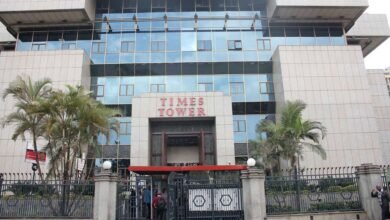
The Financial Reporting Centre (FRC) has raised concerns that the non-inclusion of advocates as agents for reporting suspicious cash dealing for clients in the country would see Kenya ranked among high-risk countries.
The Proceeds of Crime and Anti-Money Laundering (Amendment) Bill 2021 is seeking to include lawyers, notaries, casinos, accountants and real estate agents in the fight against money laundering in Kenya.
“We are optimistic that whatever we are advancing is to address risks and vulnerabilities in our financial systems because they exist as the situation may be on the ground,” FRC director-general Saitoti ole Maika told the Business Daily.
The first proposals on the bill went through the first reading at the National Assembly on October 6 this year, and the Departmental Committee on Finance National Planning is currently receiving views from stakeholders and members of the public for the second session.
Practitioners in law firms will be obliged to keep records and report to FRC any transactions above Ksh.1 million, should the Bill pass.
Eastern and Southern Anti-Money Laundering Group is assessing the effectiveness of Kenya’s policies to protect the country’s financial system a process which will come to an end in February next year.
On October 20 this year, President Uhuru Kenyatta unleashed new restrictive measures to regulate cash movement within Kenya’s economy, aimed at combating money laundering activities.
The President directed the National Treasury and related stakeholders to raise the threshold for the reporting of cash transactions of above Ksh.1 million units with the Financial Reporting Centre (FRC) effective November 1, 2021 even as financial institutions will retain their reporting obligations with the FRC.

He noted that the current reporting application has inhibited the growth of small and medium enterprises (SMEs) who are largely reliant on cash-only transactions.
“The implementation of cash transaction requirements by banks has not been facilitative of the operations of micro-small and medium enterprises (MSMEs) and has to some extent inhibited their growth,” President Kenyatta said on Wednesday.
It is a move aimed at implementing Anti-Money Laundering/Combating the Financing of Terrorism (AML/CFT) controls by the government.
Kenya is also seeking an amendment to the law that will see changes to how much a foreigner can invest in the country.
The current investment threshold by law requires a foreigner to have at least Ksh.10.92 million (US$.100,000) to obtain an investment certificate.
Interior Cabinet Secretary Dr. Fred Matiangi while appearing before National Assembly’s Committee on Administration and National Security on August 13, said the ministry will be seeking parliamentary approval to the law to raise the minimum investment threshold for foreigners.
“That’s how some people can come in including money launderers and engage in ‘wash-wash’ (informal language for black money)… and then masquerade around as business dealers,” said Dr. Matiagi.
A report tabled before the US Congress on March 9 this year, exposed Kenya’s vulnerability to money laundering, financial fraud and terrorism financing.
The vices are perpetuated through the growing use of mobile money transfer platforms, the hawala system of banking and Trade-Based Money Laundering.





